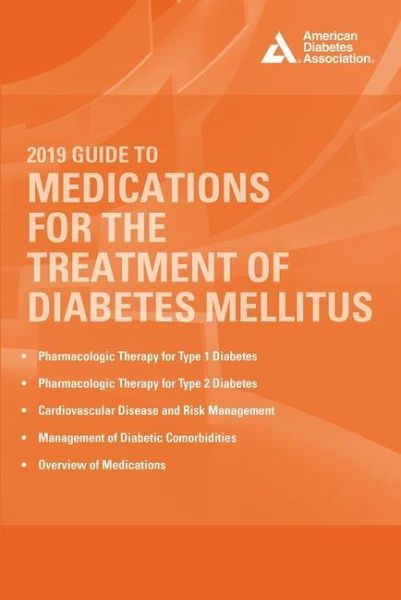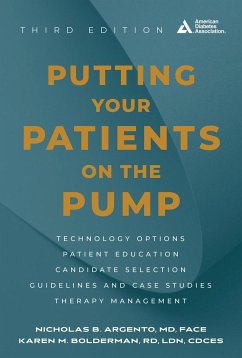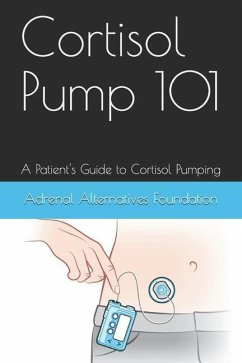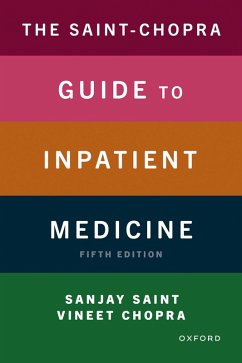
2019 Guide to Medications for the Treatment of Diabetes Mellitus
Versandkostenfrei!
Versandfertig in über 4 Wochen
50,99 €
inkl. MwSt.

PAYBACK Punkte
25 °P sammeln!
Medications for the Treatment of Diabetes offers a bridge between drug handbooks and pharmacology texts. Focusing entirely on diabetes drugs, this reference is divided into two sections: 1) Drugs used to manage hyperglycemia and 2) Management of diabetic co-morbidities. The first section includes: -- Pharmacologic Therapy for Type 1 Diabetes -- Management of Hyperglycemia in Type 1 DM- info from practical use of insulin, pathophysiology, treatment strategy -- Insulins- RAIAs, Short-acting insulins, intermediate-acting insulins, LAIAs, Concentrated Insulins, Insulin pumps and patches, inhaled i...
Medications for the Treatment of Diabetes offers a bridge between drug handbooks and pharmacology texts. Focusing entirely on diabetes drugs, this reference is divided into two sections: 1) Drugs used to manage hyperglycemia and 2) Management of diabetic co-morbidities. The first section includes: -- Pharmacologic Therapy for Type 1 Diabetes -- Management of Hyperglycemia in Type 1 DM- info from practical use of insulin, pathophysiology, treatment strategy -- Insulins- RAIAs, Short-acting insulins, intermediate-acting insulins, LAIAs, Concentrated Insulins, Insulin pumps and patches, inhaled insulins, mixed and mixing insulin, use in Type 1, use in Type 2 -- Pharmacologic Therapy for Type 2 Diabetes -- Management of Hyperglycemia in Type 2- brief overview, pathophysiology, treatment strategy, overview of medications -- Biguanides -- TZDs -- SUs -- Glinides -- SGLT-2 Inhibitors -- AGIs -- DPP-IV inhibitors -- GLP RAs -- Amylin mimetics -- BARs -- DA-2 agonists Each chapter in Section 1 includes: 1.Drug class overview and role in diabetes treatment 2.Pharmacology -- a. Mechanism of action, b. Pharmacokinetics 3.Treatment Advantages/Disadvantages -- a. General for the class, b.When applicable, a discussion of evidence that supports the benefits of using a particular drug in a class over another in the same class (eg, Avandia vs Actos) 4.Therapeutic Considerations -- a. Significant Warnings/Precautions, b. Special Populations, c. Pharmacogenomics, d. Adverse effects and monitoring, e. Drug Interactions, f. Dosage and administration 5.Table with Doses and Dose Adjustments 6.List of important combination products 7.References The second section includes: -- Cardiovascular Disease and Risk Management -- Microvascular Complications and Foot Care -- Medications for the Management of Hypertension -- Medications for the Management of Hyperlipidemia -- Antiplatelet Therapy -- Medications for Smoking Cessation -- Medications for the Management of Neuropathy (peripheral and autonomic) -- Medications for the Management of Nephropathy -- Medications for the Management of Retinopathy -- Medications for the Management of Depression -- Medications for the Management of Hypoglycemia -- Medications for the Management of Obesity -- Immunizations in Patients with Diabetes Each chapter in Section 2 includes: 1.An overview of the condition or problem 2.Goals of treatment 3.Overview of the medications and rationale for the medications used for the problem 4.Overview of each class of medication 5.Overview of combination therapy -- a. first combination, b. second combination 6.Doses and Dose Adjustments for the more salient medications 7.List of important combination products 8.References












